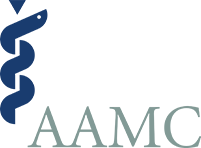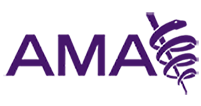
Physician Data Initiative
Overview
The ability to understand the shifting dynamics of the physician workforce continuum relative to the needs of patients and communities is fundamental to improving the health of the nation. In pursuit of this goal, the Accreditation Council for Graduate Medical Education (ACGME), the American Medical Association (AMA), and the Association of American Medical Colleges (AAMC) are collaborating through the Physician Data Initiative, a working group founded in 2021 to establish a standard practice for categorizing, collecting, reporting, and sharing sociodemographic data.
Through the Physician Data Initiative, the AAMC, ACGME, and AMA aim to enable meaningful collaboration by sharing better data for advancing research regarding a more diverse and culturally prepared physician workforce. Beginning with the development of standard data definitions and approaches to the collection and sharing of data, this initiative sets the foundation for expanded access to physician workforce data across the continuum of medical education, clinical practice, and research.
About the Organizations
Contact
For more information, please contact:
AAMC - Diana Bourke, Chief Strategic Operations and Data Officer, dbourke@aamc.org
ACGME - Rebecca Miller, Senior Vice President, Applications and Data Analysis, rmiller@acgme.org
AMA - Tammy Weaver, Vice President Physician Professional Data, Tammy.Weaver@ama-assn.org
Frequently Asked Questions
The AAMC, ACGME, and AMA have collaborated to establish a common understanding for categorizing, reporting, and voluntarily sharing sociodemographic data, beginning with race and ethnicity and language proficiency. The next areas under consideration include sexual orientation and gender identity. These efforts will enable meaningful collaboration with organizations across the medical education and workforce continuum to better understand, impact, and identify solutions to the most pressing diversity, equity, and inclusion challenges. There is great benefit to voluntarily adopting mutually agreed-upon values and structure for consistently gathering and disaggregating data that will continue to improve medical care.
The group identifies, reviews, and evaluates existing standards and best practices by leveraging internal experts and consulting with well-known and respected industry groups with expertise in specific areas. The standards align with federal practice where applicable, including the Office of Management and Budget and the U.S. Census Bureau.
This work is driven by the importance of a diverse physician workforce and a more equitable health system. Effective and timely data is a fundamental and foundational requirement for conducting research across the physician workforce continuum. Consistent and standardized data definitions, collection, ability to share information, and access to key demographics can lead to better understanding, solutions, and ideas for change. While the goal is not to mandate standards broadly across organizations, there is great benefit to adopting mutually agreed-upon values and structure for gathering and disaggregating data in a consistent manner.
Absolutely. A foundational purpose of this work is to identify and adopt common data definitions and categories in health care to advance research in a meaningful way. Any use must be consistent with the copyright notice, disclaimer, and attribution statements included with each standard.
There are several ways to participate. As noted above, the group is actively engaging organizations with specific expertise in identifying definitions and data categories. Other organizations may also elect to work with the group, or individual members of the group, on research topics of interest.
AAMC - Diana Bourke, Chief Strategic Operations and Data Officer, dbourke@aamc.org
ACGME - Rebecca Miller, Senior Vice President, Applications and Data Analysis, rmiller@acgme.org
AMA - Tammy Weaver, Vice President Physician Professional Data, Tammy.Weaver@ama-assn.org
Copyright and Disclaimer
Physician Data Initiative © 2024. Accreditation Council for Graduate Medical Education (ACGME), American Medical Association (AMA), and Association of American Medical Colleges (AAMC). May be reproduced and distributed with attribution to the AAMC, ACGME, and AMA. Modifications are permitted with an acknowledgement of the modifications made.
The Standards are not guidelines and have not been tested for all potential applications. The Standards, in their original or a modified form, are provided “as is” without express or implied warranties of any kind, including warranties of merchantability, fitness for a particular purpose, or non-infringement. The AAMC, ACGME, and AMA expressly disclaim and assume no liability for use of or reliance upon the Standards whether in their original or a modified form.


